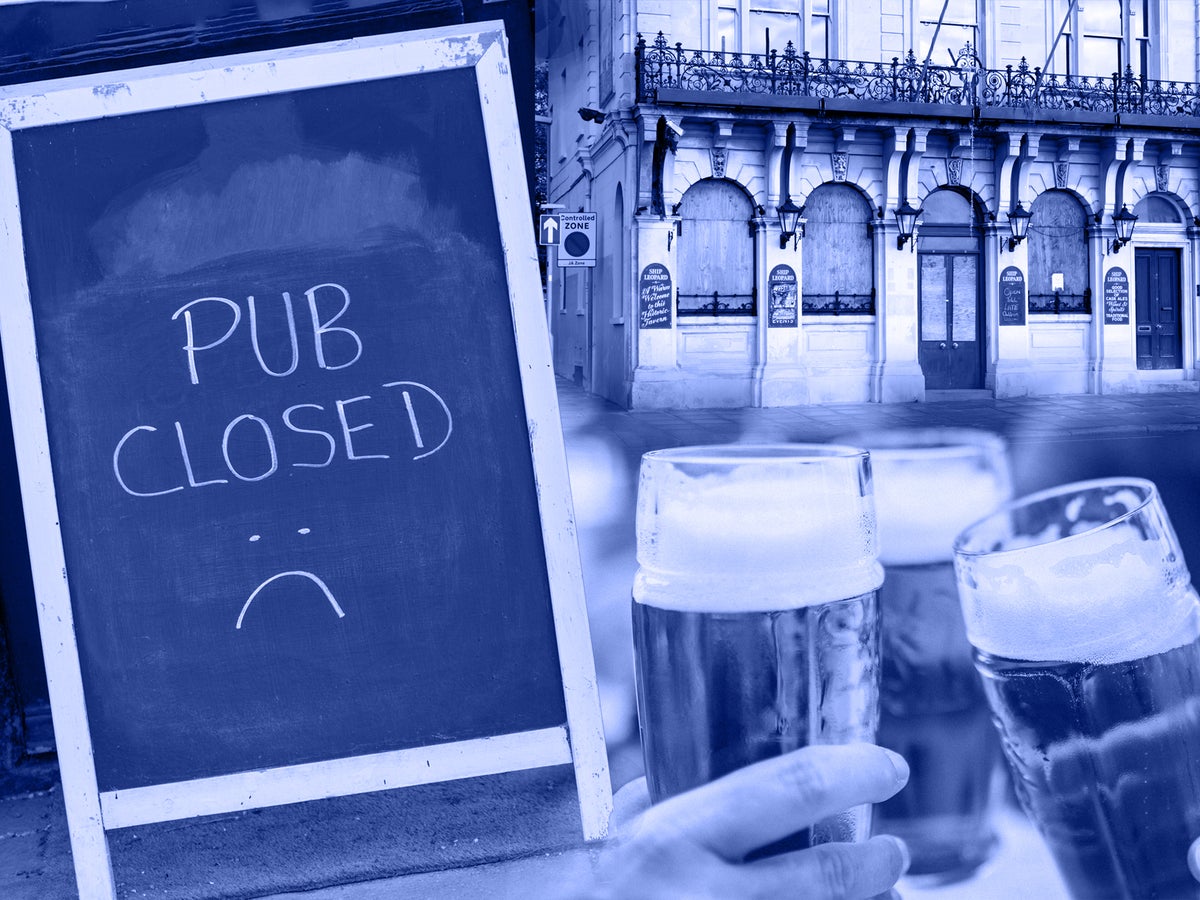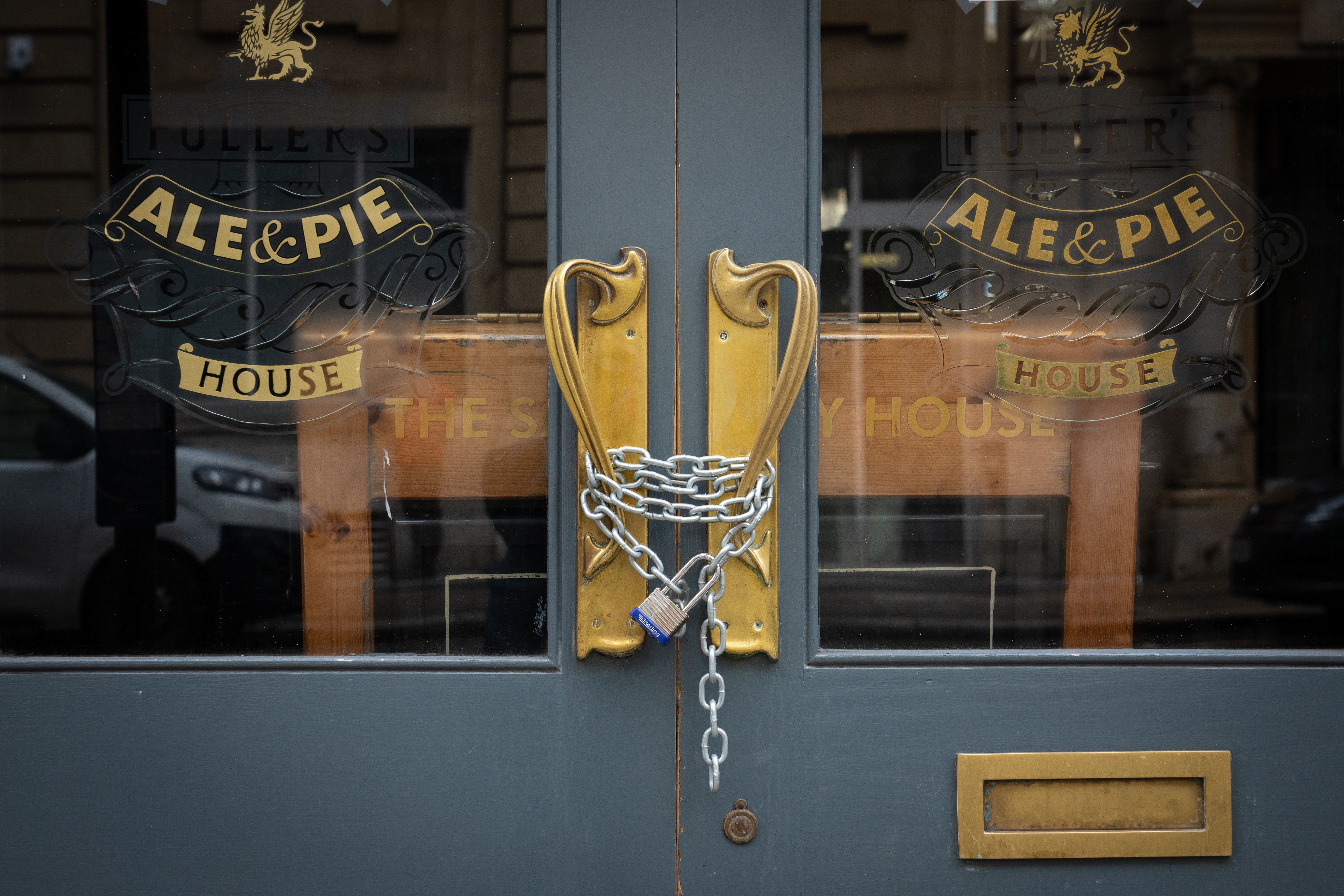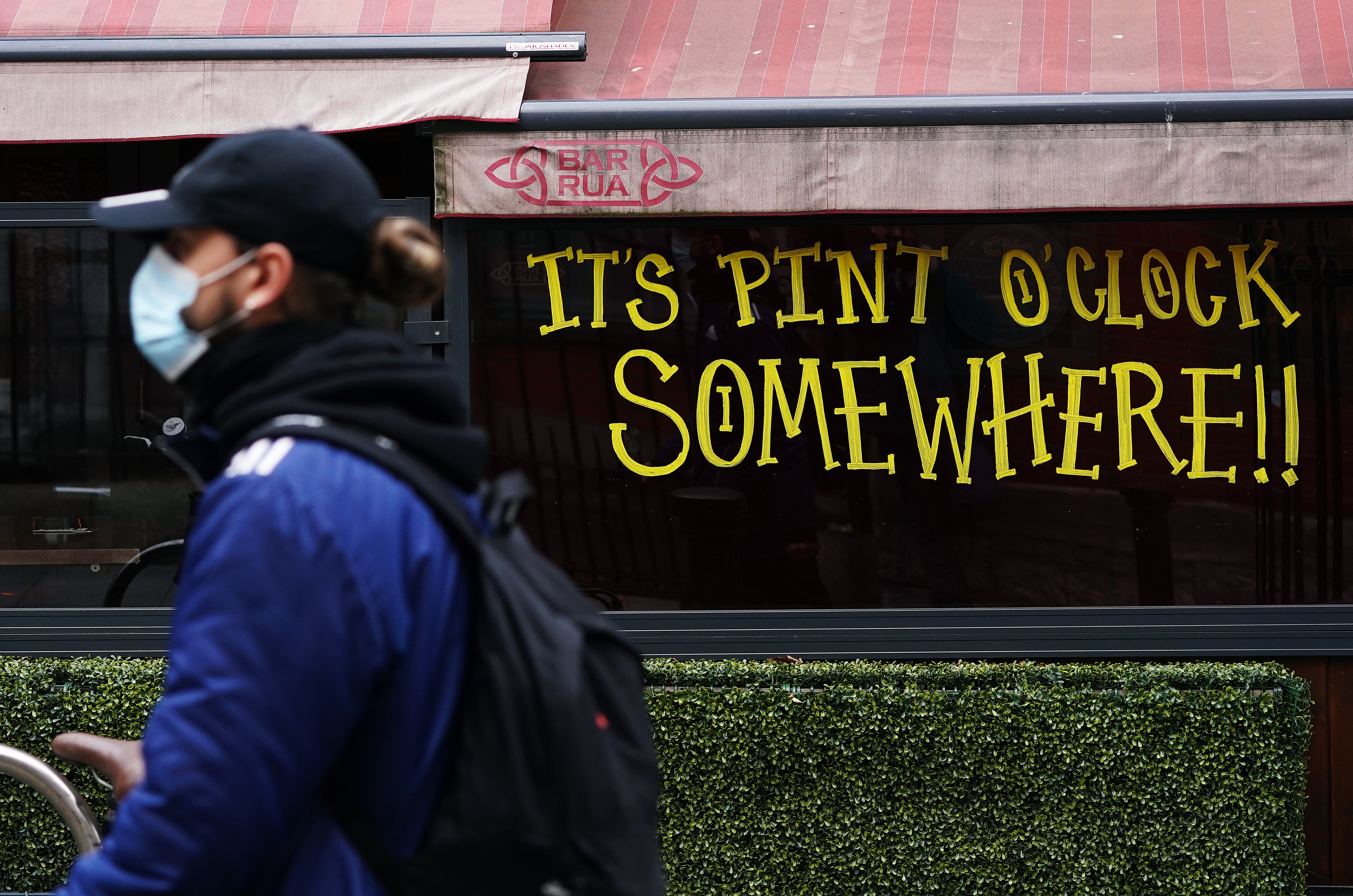
Brexit is killing the hospitality industry, with the number of venue closures rising sixfold in just a year, stark new data obtained exclusively by The Independent shows.
The net closure of almost 4,600 pubs, clubs, hotels and restaurants in the year to 31 March 2023 – the 12 months that followed the ending of Covid restrictions – lays bare the devastating impact of staff shortages caused by Brexit as well as the cost of living crisis. The figure compares to just 678 closures in the year to March 2022 and amounts to an average of 12.6 closures a day, with independent family-run businesses taking the biggest hit.
Britain now has 13,793 fewer pubs, bars, hotels, restaurants, nightclubs and other licensed premises than it had three years ago. This represents a 12 per cent contraction of the UK hospitality sector, and is more than twice the 6,400 net closures recorded in the three-year period before Britain’s withdrawal from the EU on 31 January 2020 and the onset of the Covid pandemic a few weeks later.
More than 30 per cent of nightclubs have gone to the wall – half of them in the past 12 months – while one in 12 restaurants, along with 5 per cent of sports and social clubs, ceased trading in the same period.
Many owners have cited persistent staff shortages since leaving the EU as the main reason they had to close. There are currently 142,000 unfilled jobs in the accommodation and food services sector, according to the Office for National Statistics. This represents a 6.5 per cent job vacancy rate, which is almost 50 per cent above pre-Brexit levels, and is the highest rate across all of the UK’s business sectors.
Chef-restaurateur Mark Hix announced “with heavy heart” last year that he was closing his Dorset pub, the Fox Inn, because of staff shortages. Hix said that despite the end of Covid, “the challenges simply continue, with rising costs and a difficulty to recruit like I have never known in my whole career”.
Weymouth fish and chip shop Fish ’n’ Fritz, shut last month, also citing a lack of staff. Owner Paul Hay said the closure was not due to cost hikes or lack of business, but rather “that we can’t find staff to keep it open”.
Michelin Guide-listed gastro-pub The Muddy Duck in Oxfordshire has ceased trading because it was unable to replace a departing chef team despite trying for three months. And Fenn, one of Fulham’s top-rated restaurants, is to shut this weekend “due to ongoing staff shortages that make keeping the restaurant open untenable”.
Lord Heseltine, the former deputy prime minister who campaigned for the UK to remain in the EU, said: “This is happening throughout the economy ... Brexit is a disaster, and increasingly people are saying so. Quite obviously we benefit immensely from access to the qualified European labour pool, and that has been denied to us, with these consequences.
“The quicker Britain wakes up to the interdependence of this country with Europe and finds a way of accessing the single market again, the better our economy will be.”
Economists say staff shortages are mostly due to post-Brexit immigration policies, which stopped free movement of labour from the EU, making it difficult to bring in lower-paid workers.
Brexit has led to less trade and lower growth, with the UK economy 5.5 per cent poorer than it would have been if Britain had stayed in the EU, according to a study by the Centre for European Reform. This amounts to £40bn in lost tax revenues. The Office for Budget Responsibility said that trade volumes are 7 per cent lower than if we had remained in the EU.

Jonathan Portes, a professor of economics and public policy at King’s College London, and a senior fellow at think tank UK in a Changing Europe, told The Independent that lower-paid sectors have been the big losers in the post-Brexit immigration arrangements.
He said: “The government would never openly admit it, but the consequence of their stated aim to move to a high-wage, high-skill economy and shrink the low-wage economy is that a significant number of low-wage employers, like hospitality companies, will go bust, as they simply do not have the wiggle room to adjust to paying higher wages.
“Ministers will never say that some pubs and hospitality companies will go to the wall as a result of their immigration policies, but that is exactly what their policies are designed to achieve.”
Jonathan Thomas, a senior fellow at the Social Market Foundation think tank, said: “It was totally envisaged that the end of EU freedom of movement would cause job vacancies in sectors reliant on low-wage EU workers. It seems to be the government’s view that hospitality, which grew substantially pre-Brexit, will be collateral damage – that it will contract and be a smaller sector than it was.”
The new figures on closures, compiled by consultancies CGA by NIQ and AlixPartners, reveal that poorer cities such as Aberdeen and Birmingham have suffered more, losing 19 and 17 per cent respectively of their city centre licensed premises in the past three years, compared to more affluent cities – such as Bristol, which lost just 1.5 per cent. The picture in London is more patchy, but overall the city has endured a net decline of 15 per cent.
The mayor of London, Sadiq Khan, said: “Our world-leading hospitality industry is a key driver of London’s and the UK’s economy, but many pubs, restaurants and other venues have been hit extremely hard by the impact of Brexit, with changes to immigration rules making it harder to recruit workers.
“With the ongoing cost of living crisis, this vital sector is facing an unprecedented and potentially catastrophic set of challenges that need to be addressed by ministers now.”

Tony Wilson, director of the Institute for Employment Studies, said: “We are one of the only major economies in the developed world with less people employed now than before the pandemic began. It is clear that Brexit has held back growth, but it has also made inequality worse, with parts of the country more impacted by staff shortages and closures than others.”
The government has used the shortage occupation list to create exceptions and make it easier to recruit low-wage workers, but while this has been used to help out the construction and social care sectors, it has not been extended to hospitality.
Trade bodies say immigration reforms are critical. UKHospitality chief executive Kate Nicholls said: “These results [referring to the CGA data] are stark. We need to see significant support from government in the form of urgent action on the labour market and energy. Staff shortages have plagued the sector for years, and with vacancies 48 per cent higher than pre-pandemic levels, the government must take action to change the immigration system.”
Labour MP Dame Angela Eagle, the former shadow business secretary, said we need to look beyond quick fixes to the immigration system. “What seems to be happening is that most of our economic growth is because of increased migration, yet at the same time, the government grandly announce they want to reduce it. There is an incoherence about the government approach, which creates uncertainty for businesses as they plan ahead.”
Karl Chessell, the director of CGA by NIQ, said that without “sustained help” to “tide the sector through the current crisis”, “many more closures are likely over the rest of 2023”. Graeme Smith, managing director of AlixPartners, added that their joint study revealed that, on current trends, the total number of licensed venues – which currently stands at 101,315, employing over 2.2 million people – was set to fall below 100,000 this year for the first time in decades.

Seventy per cent of employers think that restricted access to labour is a threat to their competitiveness, “and will be in five years’ time”, according to a poll published in a CBI report last year. Nearly half of the businesses said they wanted the government to grant temporary emergency visas for roles in obvious shortage.
And research carried out by think tanks the Centre for European Reform and UK in a Changing Europe suggests that Brexit has led to a shortfall of 330,000 people in the UK labour force, mostly in the low-skilled economy, compared to how things would have been if we had stayed in the EU.
Luke Wasserman, the co-owner of Fenn, which opened in 2018 and got a reboot off the back of Covid, said staffing has been an ongoing issue.
He said: “Prior to Brexit, I believe things were very different. We had 10 good candidates per job before we left the EU; now we are lucky if anyone turns up. It’s a constant battle, and especially upsetting because people have put in 60-hour weeks and we have built such a revered reputation. But the truth is that, while Covid was big, Brexit has been massive. You look at all the closures going on countrywide, and you see, yeah, this is definitely an issue.”
A government spokesperson said: “Hospitality plays a huge role in local economies and communities. We have been working hard to fill vacancies in the sector through our Hospitality Sector Council and our Plan for Jobs – and are glad to see vacancies falling 16 per cent in the last year. During the pandemic, much of our £400bn of business support was aimed at hospitality, retail and leisure, and we have provided further support through the £18bn energy bill relief scheme and the energy bills discount scheme for UK businesses, which will run for a further 12 months.”
Additional reporting by Archie Mitchell







